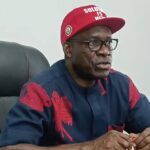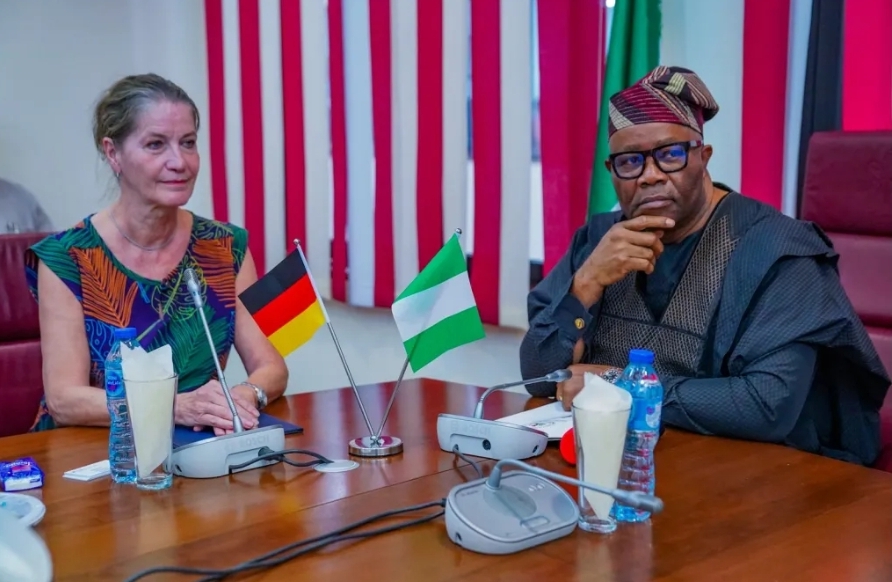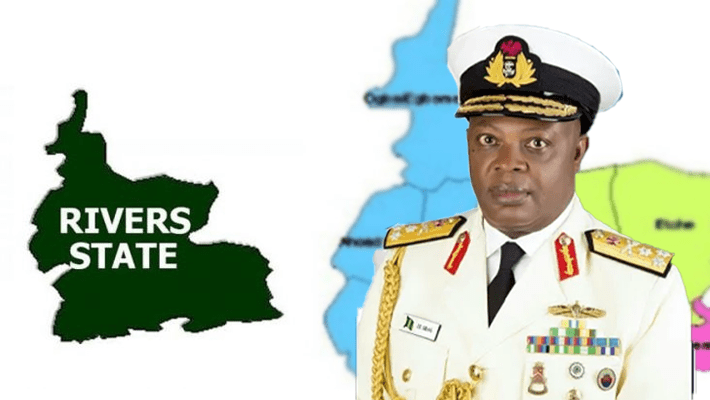During a courtesy visit by German Ambassador to Nigeria Annette Gunther on Wednesday in Abuja, Akpabio delivered this message.
Senator Godswill Akpabio, the President of the Senate, has appealed to the German government to refrain from deporting approximately 12,000 illegal migrants to Nigeria, citing concerns that such actions could exacerbate security challenges within the country.
Akpabio conveyed this message during a courtesy visit from the German Ambassador to Nigeria, Annette Gunther, in Abuja on Wednesday. Gunther acknowledged the economic significance of both Germany and Nigeria in their respective continents and emphasized the potential for a collaborative partnership.
“We are honoured to be here today. Nigeria and Germany, being the largest economies and populations in their respective continents, need to come together in their people’s interests. Nigeria is Germany’s second-largest trading partner in sub-Saharan Africa,” the German envoy said.
Senator Akpabio’s appeal recognizes the economic significance of both Germany and Nigeria within their respective continents. Both nations play pivotal roles in their regions, and any decision affecting their relationship warrants careful consideration.
The central argument put forth by Senator Akpabio is the potential exacerbation of security challenges in Nigeria if the proposed deportations proceed. It is crucial to analyze the existing security landscape in Nigeria and how deporting such a substantial number of individuals might contribute to instability.
Acknowledging the economic ties between Germany and Nigeria, Senator Akpabio emphasizes the potential for a collaborative partnership. This collaboration could involve addressing the root causes of migration, enhancing border control mechanisms, and fostering diplomatic solutions to immigration-related challenges.
The mass deportation of individuals could have significant repercussions on Nigeria’s economy. Loss of manpower, potential strain on social services, and disruptions in communities could result in economic challenges for the country.
Beyond the economic and security aspects, there is a humanitarian dimension to this issue. Senator Akpabio’s plea suggests a need for compassion and understanding, especially considering the circumstances that led these individuals to migrate in the first place.
In his own address, Akpabio noted that Nigeria is grappling with insecurity and called on Germany to work in synergy with Nigeria in the areas of security and power to enhance the socio-political development of Nigeria.
The Senate President, then, urged Gunther to help Nigeria, Africa’s largest population, fight insecurity as well as strengthen its economy.
He begged the German government to halt its move to deport 12,000 illegal migrants of Nigerian extraction, as this could create more insecurity in the country.
“We also have a problem of infiltration from other countries. We require assistance from Germany in the area of security because when we had the Boko Haram issues in the North East, it might not have escalated to the level it did if we had the support of major players like Germany and others,” he said.
“It was very difficult for us to get support from America at that time, maybe due to what they read on social media concerning us. If developed countries stopped listening to social media, they would be willing to assist developing countries.
“The recent decision of Germany to deport illegal Nigerians back to the country numbering 12,000 is something you have to look into for us because of its security implications. As a result of the current political situation in Mali, Niger, and Burkina Faso, almost every black person in Germany would claim to be a Nigerian because they don’t want to return to crisis-prone countries.
“Dumping 12,000 illegal immigrants in Nigeria would lead to the escalation of insecurity in the country. There is, therefore, a need for your country to allow our immigration officers to assess who exactly is a Nigerian among them. If they allow them in here without any kith and kin and they have to survive, the result would be nothing but militancy or insecurity,” Akpabio added.











